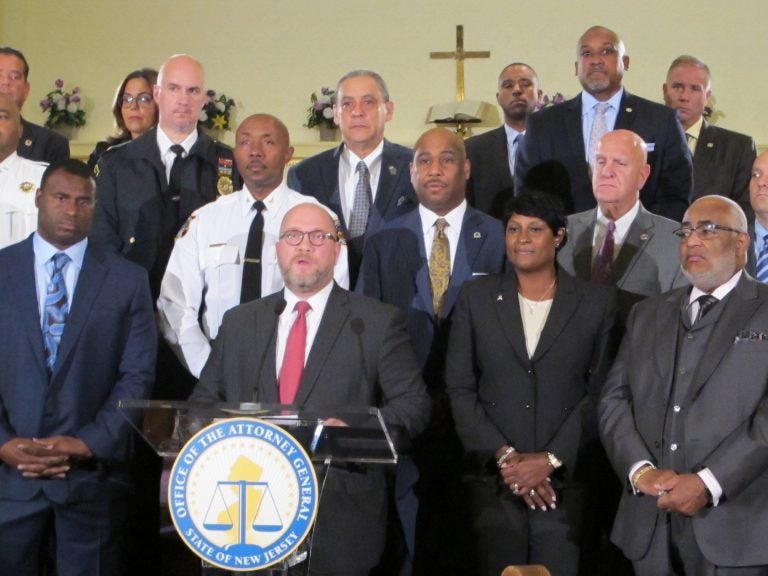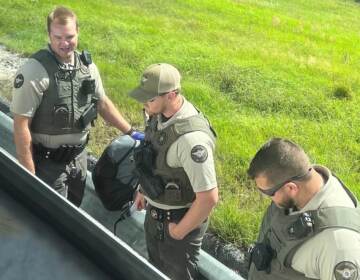N.J. launching $1 million effort to help prevent conflicts between police, citizens
Videos airing on television, social media, and in movie theaters will provide tips to help ensure encounters between police and residents are safe and mutually respectful.

Joined by law enforcement and community leaders , New Jersey Attorney General Christopher Porrino announces the "Safe Stop" campaign at Friendship Baptist Church in Trenton. (Phil Gregory/WHYY)
New Jersey is using $1 million from criminal forfeiture funds to pay for an information campaign intended to prevent conflicts during police and civilian encounters.
Traffic stops are the most common setting for misunderstanding that can escalate to dangerous situations, said Attorney General Christopher Porrino.
Videos that will air on television, social media, and in movie theaters provide tips to help ensure those encounters are safe and mutually respectful, he said during a rollout of the “Safe Stop” campaign at Friendship Baptist Church in Trenton.
“If it’s nighttime and you’re pulled over, turn on the lights in your car so the police officer can see who and what’s in there.” he advised. “Roll down your windows so the police officer doesn’t have to wonder about who or what is in the back seat. Turn the radio off. Put your hands on the steering wheel.”
The video features community leaders, law enforcement, and celebrities — including former New York Giants linebacker Jessie Armstead.
“Respect the work that the police officer has to do, and the police officer will respect the citizen when pulling them over,” Armstead said. “I think things will work out so much better.”
Porrino has also ordered that a dedicated hotline — 833-4-SAFE-NJ — be set up at his office for citizens to call if their complaints about police behavior are not addressed by local law enforcement in a timely manner.
“We want to make sure that the civilian community has a way to reach out to someone who is few steps removed from the process,” he said. “To make sure that the process and the rules are being followed.”
WHYY is your source for fact-based, in-depth journalism and information. As a nonprofit organization, we rely on financial support from readers like you. Please give today.



